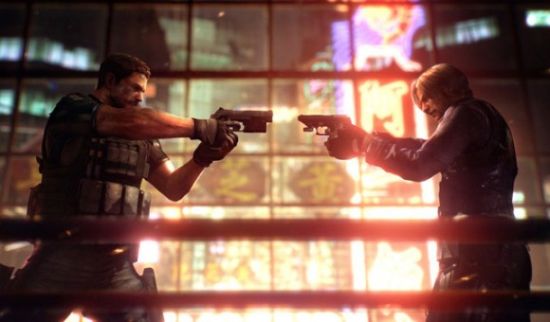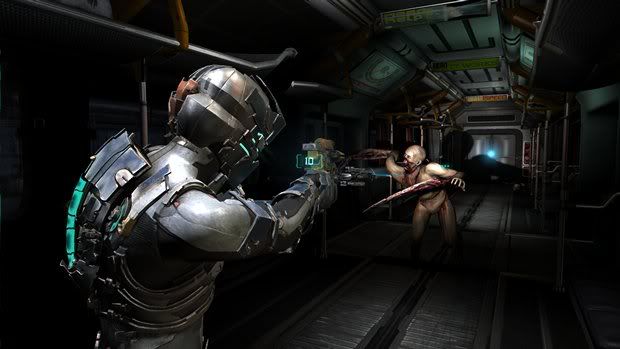
I've argued that games are an art form before, but with one major caveat: most are bad art. One of the more likely reasons that games struggle between being meaningful vehicles for experiences and a frowned-upon pastime of the ADD generation is that so few blockbuster games aspire to be anything more than big, dumb Hollywood action flicks. In fact, that's the standard of the industry. Yet, even as I write this, there are hundreds, thousands, or perhaps even hundreds of thousands of people all over the world defending their hobby as something more than an interactive version of the movie Crank.
You don't have to tell me that there are plenty of games that don't involve gratuitous violence (some of my current favorites are Flower, Journey, and Fez). That's not the issue. The issue is that so few triple-A titles contend to be anything more than that and that those are the titles that an outsider to the medium is going to read about in the paper or hear about on TV when some staunch conservative is arguing that Call of Duty is going to make their kids open fire in an airport. But really, as you'd tell them, games are no different than any other medium when it comes to opening up new experiences for you that are sometimes intentionally graphic or controversial.
However, if you paid attention to E3 this year, you likely heard about Call of Duty: Black Ops II, Halo 4, The Last Of Us, Dead Space 3, Resident Evil 6, Watch Dogs, Tomb Raider, and Far Cry 3, all of which are shooters. Sure, they each have their own elements, but is this really the type of diversity we should be hoping for in this burgeoning young medium? The only real difference between a lot of them is the setting or what you're pointing the barrel of your gun at.
Poet Charles Baudelaire spoke about the French concept of the "spleen." This idea doesn’t refer to the bodily organ, but to a sense of never-ending melancholy due to being disgusted with the world as a whole. Philosopher Walter Benjamin would later illuminate upon Baudelaire's "spleen," saying that audiences' attention spans were growing shorter, and that mediums such as poetry would have to evolve to be quicker and more concise for the increasingly impatient and unhappy masses. Are we seeing an evolution of Charles Baudelaire's concept of the spleen in today’s video games? Are we unable to enjoy an experience unless at its core lies the exact same mechanics as those behind every other triple-A title?
It's hard to tell if that's what gamers want or just what developers think gamers want. Either way, it's an aggressively bad trend to follow. It's as if developers are worried that their new intellectual property just won’t make it unless the protagonist is holding a firearm. For example: Watch Dogs' trailer was so engrossing and unique to me until the trench-coated hacker main character pulled out a gun. This drew immediate (and distressing) parallels to existing IPs like Grand Theft Auto. We're getting another third-person shooter.

It's not even just the lack of creativity in hardcore-oriented games that I'm talking about. When Dead Space came out in 2008, it ushered players into a tense and frightening survival-horror atmosphere that was largely unlike anything most had felt since the original Resident Evil games. It had a personality. As the Resident Evil franchise appeared to be moving away from survival-horror (with most of its recent titles looking more like Black Hawk Down than Night of the Living Dead), Dead Space was a welcome addition to gamers' libraries. It was the go-to title for a current-gen survival-horror fix.
Then the series changed its focus with the release of Dead Space 2. The sequel was faster and more of a shooter than its predecessor, which was focused on the solitary, claustrophobic atmosphere with an emphasis on horror. Our hero, Isaac, was an engineer — not a war hero — and it felt like it. At this year's E3, we saw an even more action-based game in the trailer for Dead Space 3. Similar to Resident Evil 5, it appears as if you'll have a co-op partner, which will certainly detract from the horror element by completely shunning the solitary feel of the first game. Many even compared Dead Space 3's trailer to the Lost Planet franchise since it seems to take place on a snowy planet inhabited by trailer-sized monsters with glowing weak points. Isaac, who was a frightened engineer in the first game, seems to have become a battle-hardened soldier. He’s not Isaac anymore, he’s Master Chief. Of course, this character progression isn't illogical given what he's been through, but it really does shift the focus away from what made Dead Space so great. Why even call it Dead Space at this point? For that matter, why is Resident Evil still called Resident Evil?
If it weren't enough that gamers are able to choose between painfully few genres, and that the vast majority of blockbuster titles aimed at the hardcore have gameplay primarily centered around pointing at enemies and clicking them to death, we now see the hardcore games further homogenizing themselves into bigger, dumber action flicks. How is Resident Evil 6 the logical progression from Resident Evil 1 or 2 when it has a trailer that emphasizes action and explosions over scares and item management? I'm not asking for Resident Evil 6 to be a remake of the first game or for Dead Space 3 to be exactly the same as the original, but it's like if Godfather 2 focused on a skateboard competition between the Mafia starring Pauly Shore instead of Al Pacino. There's just none of that original personality that made it great and it represents a radical and, for me, unwarranted change.
It's terribly upsetting to see games that had a personality and a story to tell aspiring to be more like Call of Duty than to really explore what they can accomplish within the universe and mechanics that once made them a standout. It's even more upsetting that the very people who would call themselves hardcore fans are the same people who seem to freely accept the bevy of intellectually bankrupt projects coming down the pipeline.
When film was originally invented it was deemed a carnival attraction. Nobody could have guessed that it would blossom into a medium capable of capturing our dwindling attention spans while still provoking us with challenging new ideas and perspectives. In the video game market of today, we see few titles worthy of true critical acclaim. Video game journalists and reviewers are content giving perfect scores to games that are nothing more than our industry's equivalent of the latest Mark Wahlberg summer action romp. With some hope and a more diverse player base with more diverse wants and needs from video games, someday we might see our humble media juggernaut become more accepted as a legitimate art form…instead of just a diversion.
VentureBeat's mission is to be a digital town square for technical decision-makers to gain knowledge about transformative enterprise technology and transact. Learn More
